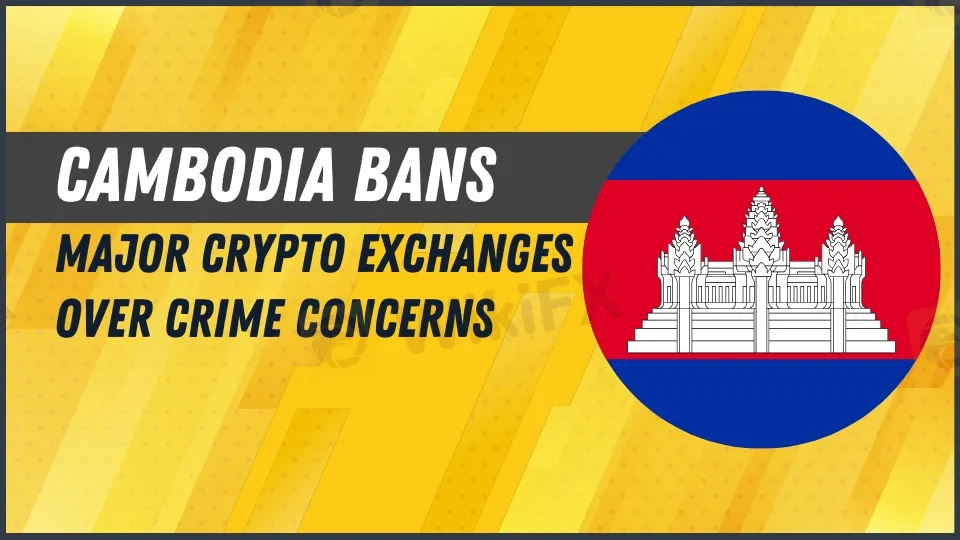Cambodia Bans Major Crypto Exchanges Over Crime Concerns
Sommario:Cambodia blocks access to Binance, Coinbase, and OKX amid a crackdown on illegal crypto activities like money laundering, with mobile apps still operational.

Cambodia has blacklisted 16 major cryptocurrency trading websites, including Binance, Coinbase, and OKX. The Telecommunication Regulator of Cambodia (TRC) is enforcing this step against cryptocurrency exchanges that do not have sufficient licenses from the Securities and Exchange Regulator of Cambodia.
While the crackdown largely impacts internet access, mobile applications for these platforms continue to function, allowing users to trade. This step is part of the Cambodian government's larger regulatory effort to combat illegal activities such as internet gambling, money laundering, and crypto-related crimes.
Limited Regulatory Framework in Cambodia
Cambodia's cryptocurrency regulatory system is still in its early stages, with just two businesses approved to operate under the SERC's FinTech Regulatory Sandbox program. These platforms are not permitted to offer digital asset exchanges for fiat currencies such as the Cambodian riel or the US dollar, which limits their scope.
Despite these constraints, Binance has established itself in Cambodia. Binance signed a memorandum of understanding (MoU) with SERC in 2022 to help draft rules for digital currencies. Furthermore, Binance worked with Cambodian conglomerate Royal Group to teach Interior Ministry staff to detect and prevent crypto-related crimes.

A Hotspot for Crypto Scams and Cybercrime
Cambodia's rising reputation as a hotspot for cryptocurrency fraud and criminality is causing alarm. The United Nations Office on Drugs and Crime has identified the nation as a hotbed for illegal activity, such as bogus Bitcoin scams. Many of these activities are said to be carried out by criminal syndicates, notably in Sihanoukville and other places.
Despite the crackdown, Cambodia continues to rank among the top 20 nations in terms of retail bitcoin usage per capita. Unofficial Bitcoin transactions continue to flourish, particularly in peer-to-peer markets. In reality, the Cambodian digital asset market is expected to earn $8 million in revenue by 2024, however, development may decrease by 2025.
Huione Guarantee's Role in Illegal Activities
Huione Guarantee, a marketplace purportedly connected to Cambodia's royal family, is a significant player in the country's contentious cryptocurrency industry. This site has been linked to deepfake fraud and money laundering schemes. Elliptic, a blockchain analytics firm, believes that since 2021, crypto wallets linked to Huione and its merchants have received at least $11 billion, with a major part thought to be related to illicit activity.
Huione Guarantee provides a peer-to-peer transaction platform, however, it has been accused of providing escrow services for Telegram transactions. The network is also related to “pig butchering” scams, in which victims are monetarily drained by someone posing as love partners.
Huione says that its use of different chat applications prevents it from monitoring the particular activity of its merchants. However, its role in money laundering and fraud continues to be a major problem.
Final Thoughts
As Cambodia tightens its assault on unauthorized cryptocurrency exchanges, it must strike a difficult balance between regulating the industry and encouraging innovation. The surge in illegal operations, notably through platforms like the Huione Guarantee, highlights the critical need for increased regulatory monitoring and international collaboration. While the crackdown may impede Cambodia's cryptocurrency sector, it is unlikely to completely kill the country's digital asset business. The following moves taken by the government will have a significant impact on Cambodia's cryptocurrency future.

WikiFX Trader
WikiFX Trader
Rate Calc

